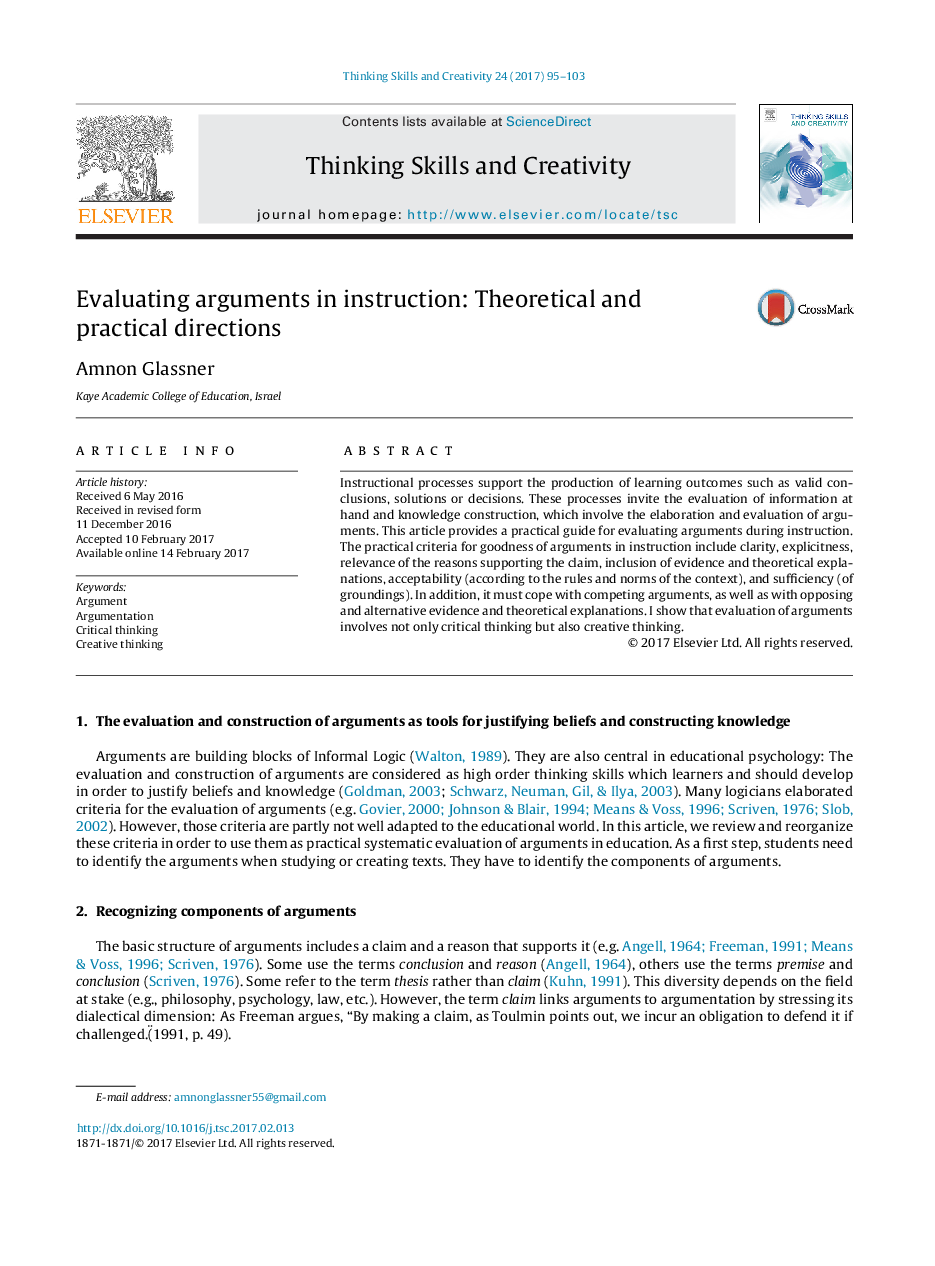| Article ID | Journal | Published Year | Pages | File Type |
|---|---|---|---|---|
| 4941857 | Thinking Skills and Creativity | 2017 | 9 Pages |
Abstract
Instructional processes support the production of learning outcomes such as valid conclusions, solutions or decisions. These processes invite the evaluation of information at hand and knowledge construction, which involve the elaboration and evaluation of arguments. This article provides a practical guide for evaluating arguments during instruction. The practical criteria for goodness of arguments in instruction include clarity, explicitness, relevance of the reasons supporting the claim, inclusion of evidence and theoretical explanations, acceptability (according to the rules and norms of the context), and sufficiency (of groundings). In addition, it must cope with competing arguments, as well as with opposing and alternative evidence and theoretical explanations. I show that evaluation of arguments involves not only critical thinking but also creative thinking.
Related Topics
Social Sciences and Humanities
Psychology
Developmental and Educational Psychology
Authors
Amnon Glassner,
